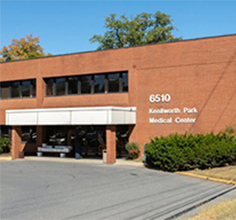
Food allergies are immune system reactions to certain proteins found in specific foods. When someone with a food allergy consumes or comes into contact with the allergenic food, their immune system mistakenly identifies the protein as harmful and releases chemicals to protect the body. These chemicals can trigger various symptoms, ranging from mild to severe, and can even be life-threatening in some cases.
In this brief article brought to you by Southern Maryland Medical Group, we explore some common symptoms of food allergies. We also introduce you to some ways that primary care doctors will test for food allergies. If you suspect a food allergy, it is crucial to consult a dependable primary care physician for proper diagnosis and guidance.
Food allergies are immune system reactions. When someone with a food allergy comes in contact with the allergenic food, their immune system mistakes the protein as harmful and releases chemicals to protect the body. These chemicals are meant to do good, but they can trigger mild to severe symptoms.
Symptoms of a food allergy can include hives, itching, swelling, difficulty breathing, nausea, vomiting, diarrhea, and in severe cases, anaphylaxis. Anaphylaxis is a life-threatening allergic reaction that can cause a drop in blood pressure, loss of consciousness, and even death if not treated immediately.
If you experience symptoms of an allergic reaction to foods, then note what you recently ate or came into contact with. Sometimes even touching the food or smelling it can trigger reactions. Even if symptoms are not severe, it’s important to see a physician or healthcare professional as soon as possible.
A primary care physician can perform sophisticated diagnostics and testing to pinpoint the exact allergen. This knowledge can help you prevent severe reactions, improve your quality of life, and reduce anxiety and stress.
Testing for allergies is nothing to take lightly. Testing for allergies should always be done under the guidance of healthcare professionals. So, what are some approaches?
This is a common and relatively quick test to identify potential food allergies. A small amount of a specific allergen is placed on the skin, usually on the forearm or back. The skin is then gently pricked or scratched to allow the allergen to enter the skin. The healthcare professional will use positive and negative controls to ensure accurate results.
If a person is allergic to that specific food, a small bump, like a mosquito bite, will appear at the test site within 15-20 minutes. The negative control, meanwhile, will not cause such a reaction. The physician will interpret and communicate the results with the patient.
Blood tests are another method used to diagnose food allergies. These tests work by detecting the presence of specific antibodies, called immunoglobulin E (IgE), in the blood.
Note that blood tests are not as sensitive as skin prick tests in detecting certain types of allergies, and false positives or false negatives can occur. Therefore, blood tests should be interpreted in the context of the individual's medical history, symptoms, and other diagnostic information.
In cases where the diagnosis is uncertain, or when there is a need to confirm or rule out a food allergy, the physician may have you consume gradually increasing amounts of the suspected allergen. It’s important to do this under medical supervision! Do NOT try this yourself.
Southern Maryland Medical Group has 3 convenient locations to provide professional medical care services in the Southern Maryland area. Call or schedule an appointment with one of our locations to get medical care help.

5801 Allentown Road, Suite 400 Camp Spring, MD 20746
Phone: 301-868- 0150
Billing Inquiries: 301-552-1270
Fax: 301-868-0243

7500 Greenway Center, Dr #1200 Greenbelt, MD 20770
Phone: 301-486-7580
Billing Inquiries: 301-552-1270
Fax: 301-486-7581

6510 Kenilworth Ave, Ste 1400, Riverdale MD 20737
Phone: 301-618-0771
Billing Inquiries: 301-552-1270
Fax: 301-618-0772